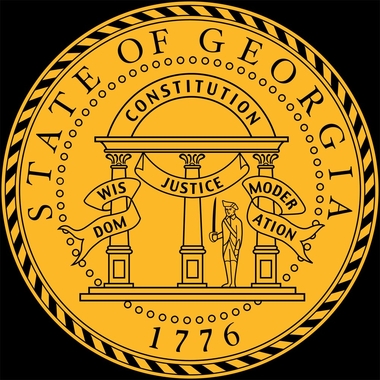Legislative dirty tricks helped get anti-LGBTQ legislation passed in Georgia

The Georgia Senate on Friday passed legislation (HB 757) that was originally promoted by its House author as protecting the rights of ministers to refuse to perform same-sex marriages. The Senate took it upon itself to substitute a new version of the bill.
In addition to the unnecessary “pastor protection” provisions (the First Amendment provides that protection), the Senate bill allows “faith-based organizations to refuse services to same-sex couples without government penalties, including loss of grants or other taxpayer funding,” according to the Associated Press.
The Human Rights Campaign (HRC) responded quickly to the Senate’s action, saying HRC and “Georgia Equality, the statewide LGBT advocacy organization, called on House Leadership and Gov. Nathan Deal to put a stop to the so-called ‘First Amendment Defense Act of Georgia’ H.B. 757. The bill, which just passed the Georgia Senate by a vote of 38 - 14 goes far beyond protecting the right to practice one’s religion and would instead put LGBT people couples, single parents, and unmarried couples at risk for discrimination.
Georgia Equality accused the Senate’s leaders of legislative dirty tricks. “’It’s outrageous that Senate leaders have not adhered to the standard practice of vetting legislation through traditional committee hearings with appropriate notice and public debate. Instead they have resorted to legislative shenanigans such as canceling hearings, moving hearing times throughout the day and using arcane legislative rules to limit debate and restrict democratic principles,’ said Jeff Graham, Executive Director of Georgia Equality.
“’It’s clear that Senate leadership knows their actions will hurt families and Georgia's economy. They are hoping that their legislative shell-game will divert attention from their true intent, which is to pander to religious extremists in an effort to win votes in the upcoming primary elections.’”
The HRC comments continued, saying, “While falsely framed as prohibiting the state government from making funding or tax status decisions based on an organization’s views on marriage that are driven by religious belief, in reality it opens the door to discrimination against LGBT couples, single parents, and unmarried couples.
“State-contracted counselors could refuse to provide services to single mothers. Taxpayer funded adoption and foster care agencies could refuse to place children in desperate need of loving and caring homes with LGBT couples. State-funded homeless shelters could turn away unwed couples and their families. Government employees could refuse to file tax forms for same-sex couples or provide state benefits to single mothers.”
ProtectThyNeighbor, a project of Americans United for the Separation of Church and State, went even further in its criticism. They wrote on their website, “First, section three [of HB 757] applies to all religious organizations, even if they are engaging in commercial activities. There are clear differences between a house of worship that hosts the weddings of its members and wants keep it that way and a religious organization that runs a commercial wedding hall that is open to the public to make money. It seems unfair to allow religious organizations to reap the rewards of a commercial enterprise but then escape the requirements placed on all other commercial businesses.
“Second, this provision isn’t limited to weddings and marriages. For example, under this provision, a religious organization that owns an apartment building could refuse to rent to unmarried, LGBT, and interfaith couples or single parents, among others.
“Third, this provision isn’t limited to activities funded by the church’s private funds. Say the government funds a religiously affiliated homeless shelter with the understanding that it will house the homeless in its community. That homeless shelter could take those taxpayer funds but then refuse to house certain Georgians in need, such as women, same-sex couples, or single parents. “
Georgia isn’t the only state with such a law proposed. Last week, an Oklahoma House committee sent to the House floor a bill similar to the Georgia bill that would affect the ability of same-sex couples to adopt a child or provide foster care. Oklahoma didn’t need to include the “pastor protection” provision – they took care of that in another law last year.
The Gayly – February 21, 2016 @ 2:15 p.m.





